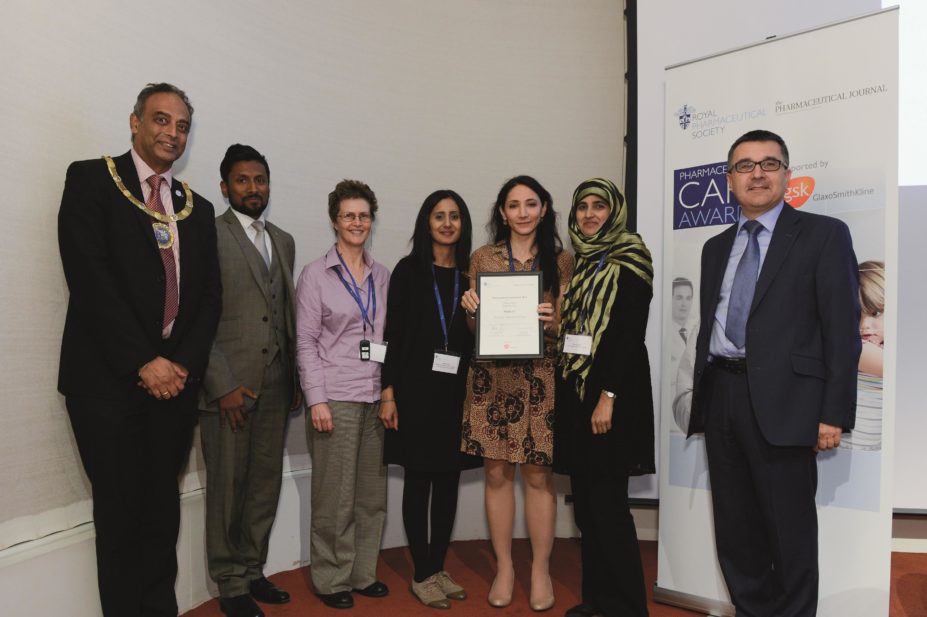
Simon Wright / The Pharmaceutical Journal
Patients with diabetes who are due to undergo surgery have benefitted from specialised pre-operative care to help identify any specific surgical needs and optimise glycaemic control, as a result of a pharmacy-led service at St George’s Hospital in South West London.
The finalist team at the 2015 Pharmaceutical Care Awards, an event jointly run by the Royal Pharmaceutical Society and The Pharmaceutical Journal and supported by GlaxoSmithKline, developed personalised peri-operative care plans for 105 patients during the course of their four-month project. Speaking at the event, surgical pharmacist Minal Patel said: “One of the challenges we had at the start of the project was actually putting a referral pathway in place so that for the very first time our patients with diabetes were being picked up by our pre-assessment nurses and being referred to a pharmacist.”
The pharmacist role was initially funded for four months with an award from a South West London small grants scheme and a full-time dedicated pharmacist has now been commissioned to this position. Patel explained that the pharmacist took a medicines history of the patient, looked at their diabetes control, communicated with GPs to get further diagnostic test results where appropriate, and considered the surgery the patient would be having, how long it would be and the predicted length of starvation for that patient. She added that patients with particularly poor diabetes control were referred to the consultant diabetologist.
All of the patients seen by the project team were screened pre-operatively and placed on the first third of the operating list to minimise fasting time. None of the patients experienced any complications as a result of their diabetes and none of the operations were cancelled due to diabetes — before the project, approximately two to three surgeries a month were cancelled for this reason. Sara Qureshi, lead pharmacist for theatres and anaesthetics, emphasised that patients should be engaged at the beginning and for the entire process. She added: “By mapping the patients’ pathway we managed to slot ourselves in to the correct positions.”
You may also be interested in
Long service of members

Membership fees 2022
